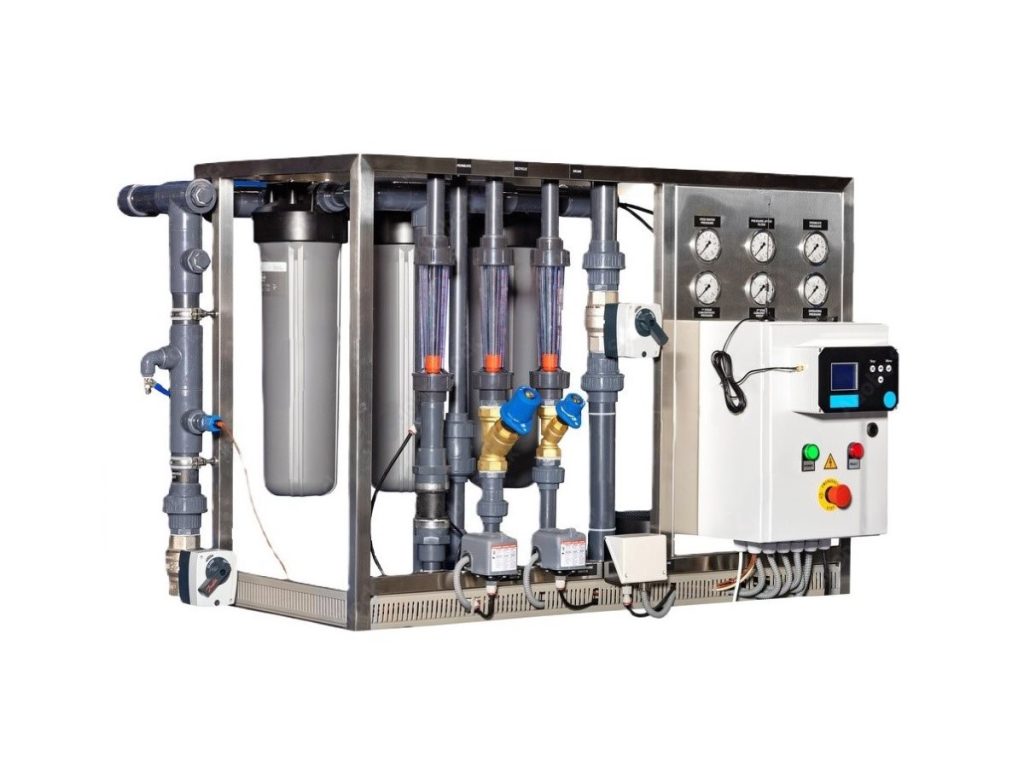Clean water is the backbone of any bustling commercial kitchen. From whipping up dishes to washing utensils, the quality of your water permeates every aspect of your operation. That’s why snagging a reliable commercial water filter system isn’t just a good idea—it’s downright essential. With options like a sturdy stainless steel water tank, these systems not only purify your water but also crank up your kitchen’s efficiency.
But let’s get down to it: what are commercial water filters anyway? They’re specialized systems crafted to strip out impurities from water on a grand scale. In a high-demand setting like a restaurant, having a steady flow of clean water keeps everything humming. It makes your food taste better, extends the life of your equipment, and keeps your customers grinning.
Exploring Different Types of Commercial Water Filters
The first step in selecting the best commercial water filter is learning about all the many kinds that are available. Some common varieties you can encounter are these:
- Activated Carbon Filters: Perfect for zapping chlorine, funky tastes, and odors.
- Reverse Osmosis Systems: Top-notch at eliminating dissolved solids and contaminants.
- Ultraviolet (UV) Filters: Use UV light to nuke bacteria and viruses without chemicals.
- Sediment Filters: Snag particles like sand, silt, and rust.
Each type does its own thing, and often, businesses mix and match to get the best water quality.

So, How Do Commercial Water Filters Work?
You may be asking how on earth commercial water filters are able to remove contaminants from water. Central to these systems is the idea of passing water through several types of filter media in order to remove contaminants. Some systems employ semi-permeable membranes to remove contaminants from water, while others use activated carbon filters to remove organic chemicals. To select and maintain the most suitable system for your requirements, familiarity with this procedure is essential.
What Do Commercial Water Filters Remove?
Commercial water filters remove a slew of contaminants that could throw a wrench in your business. Here’s what they typically tackle:
- Chemical Additives: Like chlorine and chloramines that mess with taste and safety.
- Heavy Metals: Including lead, mercury, and arsenic, which are bad news for health.
- Microorganisms: Bacteria, viruses, and parasites that could make folks sick.
- Physical Sediments: Dirt, rust, and other bits that cloud your water.
By filtering out these unwanted guests, you not only safeguard your customers but also shield your equipment from damage.
The Real Benefits of Using a Commercial Water Filter System
Investing in a commercial water filter system offers perks that ripple through your whole operation:
- Better Taste and Quality: Pure water means your food and drinks taste their absolute best.
- Longer Equipment Life: Cuts down on scale and mineral buildup, saving you on maintenance.
- Smoother Operations: Cleaner water leads to fewer hiccups and less downtime.
- Happy Customers: High-quality water contributes to an awesome dining experience.
Choosing the Right System for Your Commercial Kitchen
There is no cookie-cutter approach to selecting the best water filter system. Consider the size of your kitchen, the water quality in your area, and the demands of your menu. You can get personalized advice and make an informed decision by consulting with a water treatment expert.
Wrapping It Up
Water quality might not be the first thing on your mind when running a restaurant, but it’s a game-changer. By getting a handle on what commercial water filters are, the different types of commercial water filters, and how they work, you’re set to make decisions that boost your business. Investing in a solid water filtration system is more than just a utility move—it’s a pledge to excellence that your customers will taste and appreciate.
